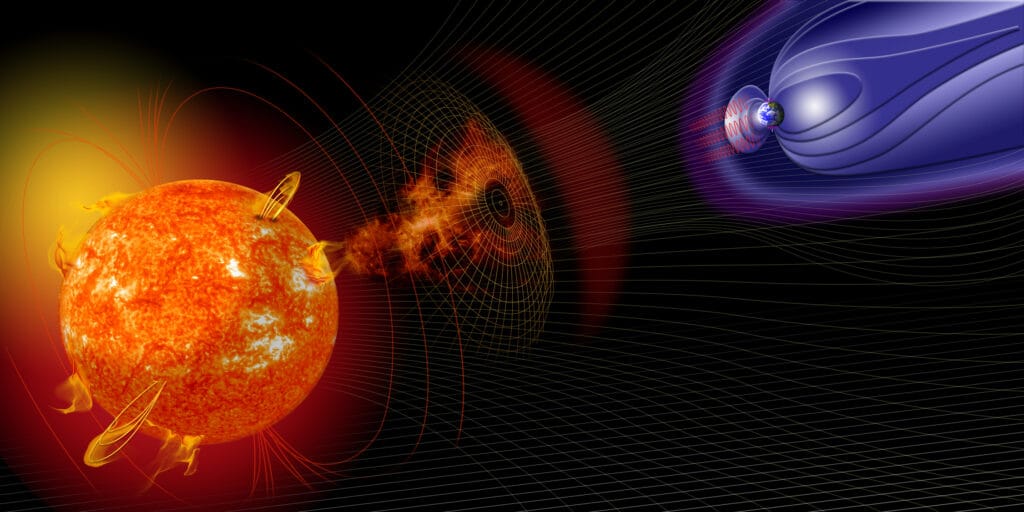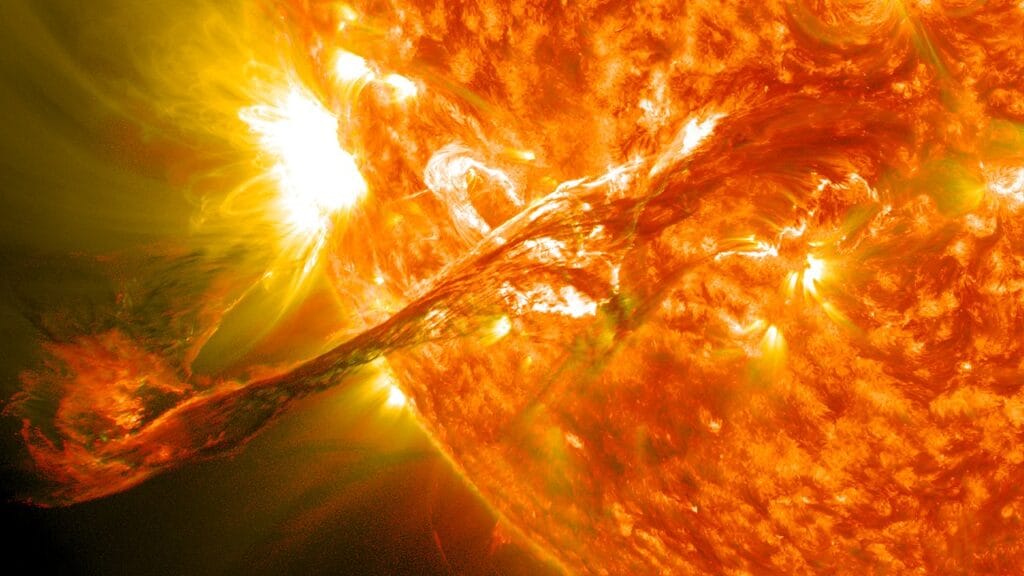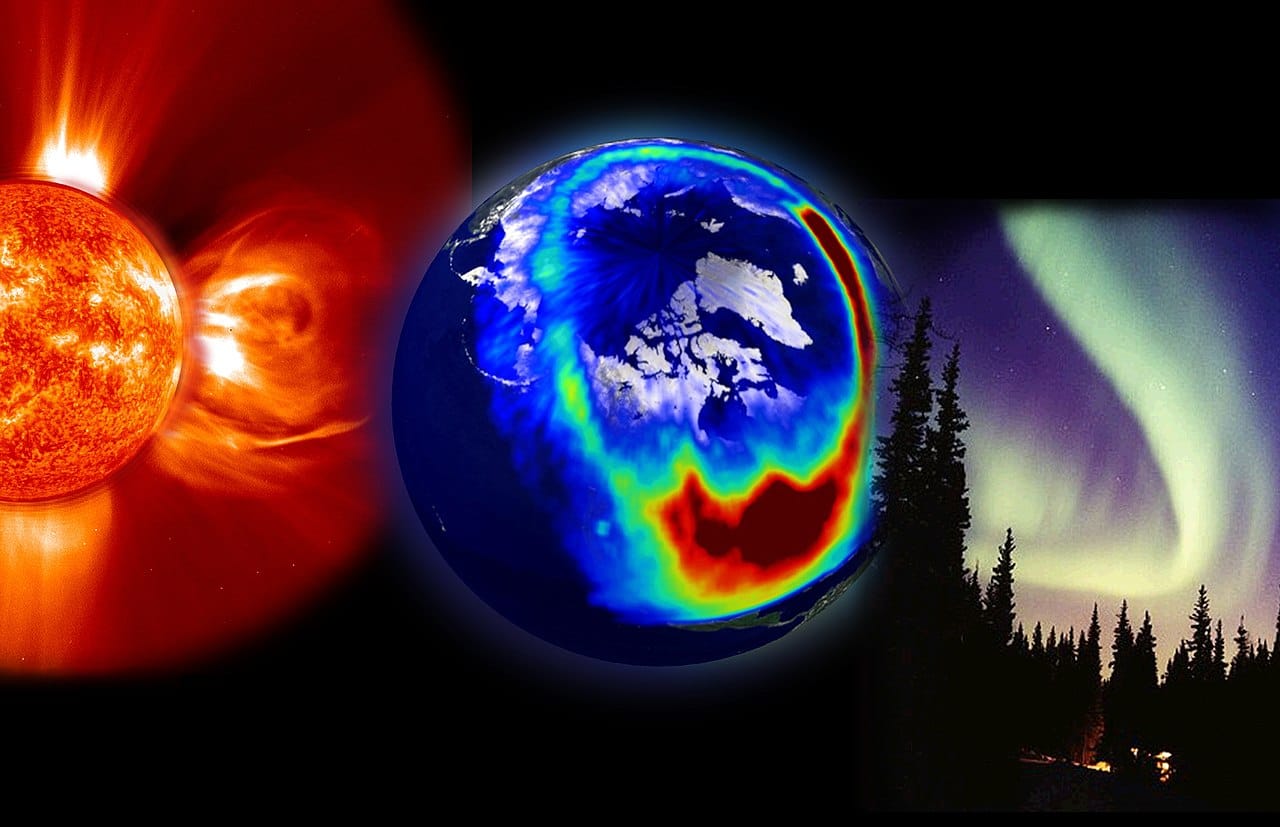There is an opinion that due to disturbances in the Earth's geomagnetic field, people may experience illness and even serious health problems. We decided to check whether magnetic storms can really have a negative impact on the human body.
Many media outlets report on the harmful effects of magnetic storms on well-being, for example, “RIA Novosti", "News", "Russian newspaper", "Channel One» and others. Their materials note that due to changes in the planet’s magnetic field, a person may experience headaches, nausea, and also increases the risk of heart attacks and death from them, they are especially dangerous for people with cardiovascular and other chronic diseases. Can meet such information and at specialized medical portals. Also they tell users about the danger of magnetic storms social networks.
Sun constantly generates electromagnetic radiation. But sometimes on its surface there are flashes - a powerful release of light, energy and charged particles. Also on the Sun from time to time there are coronal mass ejections, that is, bursts of plasma and magnetic radiation from the solar atmosphere. If they occur on the side currently facing the Earth, the radiation can reach our planet. However, everything is not as scary as it sounds, since the Earth is under protection magnetosphere - areas where the magnetic force field predominates, fueled by core planets. It was largely thanks to this protection that life was able to arise on Earth. When the flow of solar energy after the next flare reaches the magnetic field of the planet, after the collision it begins to fluctuate - this is called a magnetic (or geomagnetic) storm.

The magnetic field redirects a significant part of this energy to the North and South poles of the Earth - it is for this reason that polar polarization occurs shine. However, a strong magnetic storm can bring to the generation of excess electric current (and, as a result, damage to electrical networks), difficulty in radio communication and navigation, as well as problems in controlling satellites. In 2021, a researcher from the University of California (USA), Sangeeta Abdu Jyoti, presented a report entitled “Geomagnetic storms: preparing for the Internet apocalypse”, where she predicted that in the event of a serious magnetic storm, the main underwater Internet cables connecting countries and continents could be damaged, and this would disrupt the operation of the Network around the world. There is no practical confirmation of her theory yet, but magnetic storms have already caused disruptions in the operation of ground infrastructure.
The fact that solar flares affect the geomagnetic field of the Earth was first noticed by the American astronomer Richard Carrington in 1859 after Carrington events, subsequently named after him. Then one of the most powerful flares in the entire history of observations occurred on the Sun, and the very next day a geomagnetic storm hit the Earth, which disabled telegraph systems. Auroras, usually visible near the North or South Poles, were visible even in the tropics. Then Carrington realized that it was the powerful flare on the Sun that he had observed earlier that caused the magnetic storm on Earth.
However, there is no consensus yet in the scientific community on the issue of the impact of magnetic storms on human health. US Geological Survey asserts, that due to the increase in background radiation during this natural phenomenon, only astronauts and pilots working at high altitudes are exposed to some danger - outside the protection of the Earth’s atmospheric layer. But there are also those who disagree with such an expert assessment.

The scientific discipline studies the influence of magnetic storms on terrestrial organisms heliobiology. Although research in this area has been conducted since the turn of the 19th and 20th centuries, “Verified” was unable to find works that would unambiguously confirm the significant impact of magnetic storms on human health. In 2020, researchers from Saudi Arabia conducted review advances in heliobiology over the previous 20 years and could not find convincing evidence that solar flares could seriously affect human well-being. The authors of the work note that additional large-scale studies are required to confirm or refute such claims. In 2021, Russian scientists also conducted a systematic review Scientific research in this area over the past 25 years has also not found convincing practical or statistical confirmation of the theory that magnetic storms can provoke the emergence or exacerbation of any diseases.
However, in 2014, New Zealand scientists published review six large stroke studies conducted from 1981 to 2004 in Europe, Australia and New Zealand, based on data from more than 11,000 patients. They compared the dates of medical visits with data on geomagnetic storms and found that strokes were diagnosed 19% more often on such days. It sounds scary, but not all experts agree with these conclusions. For example, James Brorson, an expert in the evaluation and treatment of stroke at the Department of Neurology at the University of Chicago commented colleagues' work: “The idea that geomagnetic storms influence whether we have a stroke seems like magical thinking. I would advise any of my patients not to worry about this under any circumstances. It remains to be seen whether this will be confirmed.”
Due to the popular belief about the harmful effects of magnetic storms on health, impressionable people may actually feel unwell - at least due to self-hypnosis. Some specialists explain This nocebo effect (it is the opposite of the placebo effect), when something that should not have any effect causes harm only because a person is convinced of the harmful effects of this phenomenon.
Thus, despite the fact that there is a whole section of science devoted to studying the influence of space weather (including magnetic storms) on human health, today there is no consensus on the verifiable issue in the scientific community. Although there is some statistical evidence that the incidence of strokes increases during geomagnetic storms, there is no specific scientific explanation for this phenomenon, and some experts are even skeptical about such data. According to many experts, further large-scale studies are needed to draw any definitive conclusions.
Cover photo: NASA Goddard Space Flight Center from Greenbelt, MD, USA, Public domain, via Wikimedia Commons
Read on the topic:
- Is it true that exposure to sunlight is good for your health?
- Is it true that without using sunscreen during a flight you can get an increased dose of UV radiation?
- Is it true that sleeping next to a charging phone is harmful?
If you find a spelling or grammatical error, please let us know by highlighting the error text and clicking Ctrl+Enter.






